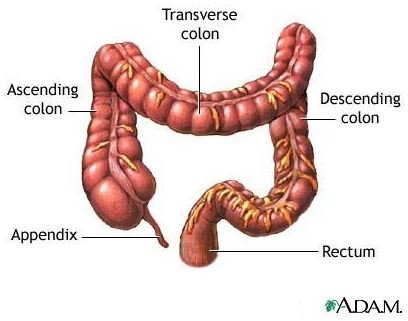Preventing Colon Cancer: Causes and Prevention
Causes of Colon Cancer

The exact causes of colon cancer are unknown, but the following can increase one’s risk of developing colon cancer:
Age. About 90% of people with colon cancer are over the age of 50.
Personal history. Individuals with a history of colon cancer, have a higher risk of getting it again.
Family history. People with a parent, sibling, or child who has had colon cancer are at an increased risk, especially if there is more than one family member or if the family member was young at the time of having colon cancer. Although family history is an important factor, 80% of colon cancers occur in individuals with no family history.
Polyps. Polyps are benign tumors on the wall of the colon. Overtime, they can become cancerous.
Inflammatory bowel disease (IBD). People with Crohn’s disease, ulcerative colitis, or other IBDs are at a higher risk of developing colon cancer. The risk increases even more the longer the person has the disease.
Insulin dependent diabetics (IDDM). Individuals dependent on insulin are 40% more likely to get colon cancer than those who aren’t.
Preventing Colon Cancer
The above causes of colon cancer can not be changed; however, you can help decrease your chances by doing the following:
Be tested. It is recommended to have a colonoscopy at the age of 50. Others may need to be tested earlier, like those with IBDs. A colonoscopy can detect polyps and remove them.
Diet. An improper diet may cause up to 75% of colon cancers.[1] In countries with high rates of colon cancer, the majority fat intake is much higher than in countries with low rates of colon cancer. It is believed cancer-causing chemicals are formed when fat breaks down. About 30% of your daily calories should be from fats. Eat more monounsaturated and polyunsaturated fats (healthy fats), limit saturated fats, and avoid trans fats (including hydrogenated oils). Limit red meat and eat more fruits, vegetables, whole grains, beans, nuts, and seeds (include adequate amounts of fiber).
Long-term smoking. Cancers need new blood vessels to grow and nicotine causes these blood vessels to grow, thus nourishing the tumor. According to researchers at Harvard, smoking triples your chances of getting colon cancer.
Limiting alcohol, maintaining a healthy weight, and exercising regularly also help in preventing colon cancer.
References
[1] Alimentary Pharmacology & Therapeutics, Volume 26, 2007.
Disclaimer
Please read this disclaimer regarding the information contained within this article.